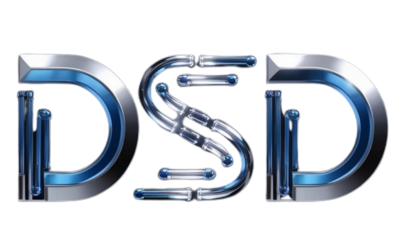Hello, I’m Doğan Seyfi Dağtaş, Doseer Founder. Laser skin care devices have surged in popularity within the beauty industry, promising solutions for everything from wrinkle reduction to pigmentation treatment, skin rejuvenation, and scar correction. Available in both professional clinics and for home use, these devices have captured attention worldwide. But the question remains: Are laser skin care devices truly effective? In this article, we’ll take an unbiased look at how laser technology works, its scientific foundations, advantages, limitations, and its role in the beauty industry. We’ll also explore how devices like Doseer AI support laser treatments, revealing the true potential of this technology.
How Laser Technology Works
Laser skin care devices harness concentrated light energy to target specific skin concerns. The term “laser” stands for “Light Amplification by Stimulated Emission of Radiation.” These devices emit light at specific wavelengths, penetrating the skin’s surface or deeper layers to address various issues. Different types of lasers serve distinct purposes:
- Fractional Lasers: Create microscopic heat columns for skin rejuvenation and scar treatment.
- Ablative Lasers: Remove the outer skin layer to address wrinkles and pigmentation.
- Non-Ablative Lasers: Stimulate collagen production in deeper tissues without damaging the surface.
- Q-Switched Lasers: Ideal for pigmentation issues and tattoo removal.
Lasers deliver energy to targeted tissues, such as melanin or hemoglobin, heating or breaking them down. For instance, in pigmentation treatment, melanin absorbs the laser energy, while in skin rejuvenation, collagen production is stimulated. This process triggers the skin’s natural healing mechanisms, promoting renewal and repair.
The Effectiveness of Lasers: What Science Says
The effectiveness of laser skin care devices is backed by scientific research. A study published in the Journal of Cosmetic Dermatology found that fractional lasers can improve skin elasticity by up to 30%. Another study reported that Q-switched lasers achieve up to 70% improvement in pigmentation issues like melasma. However, effectiveness depends on several factors:
- Skin Type: According to the Fitzpatrick scale, darker skin tones may face higher risks of side effects.
- Device Quality: Professional-grade devices offer greater energy precision than home-use models.
- Operator Expertise: The success of laser treatments hinges on the skill of the professional administering them.
AI-powered skin analysis devices like Doseer AI, developed over the past three years, enhance the effectiveness of laser treatments. Doseer AI analyzes skin attributes such as melanin density, sensitivity, and hydration levels, providing professionals with critical data. This helps determine the appropriate laser type or energy level for a client. For example, sensitive skin may require a low-intensity laser. Importantly, Doseer AI does not prescribe treatment plans or products; it delivers objective data to support professionals’ decisions.
Advantages: The Strengths of Laser Devices
Why have laser skin care devices become so popular in the beauty industry? Here are their key strengths:
- Fast and Targeted: Lasers address specific concerns like pigmentation or wrinkles with precision, often delivering visible results in just 20-30 minutes per session.
- Minimally Invasive: Compared to surgical methods, laser treatments require shorter recovery times and less discomfort.
- Long-Term Benefits: By stimulating collagen production, lasers support ongoing skin rejuvenation. For instance, fractional laser treatments can improve elasticity for 6-12 months.
- Versatility: Lasers tackle a wide range of issues, from acne scars to uneven skin tone.
Client experiences highlight these benefits. One client, after a Doseer AI analysis revealed surface-level pigmentation, underwent Q-switched laser treatment. After four sessions, pigmentation decreased by 80%, boosting the client’s satisfaction and the beauty center’s reputation.
Limitations: When Lasers Aren’t the Answer
While effective, laser devices aren’t a one-size-fits-all solution. Understanding their limitations helps manage expectations:
- Risk of Side Effects: Darker skin tones may experience hyperpigmentation or burns. Doseer AI’s skin type analysis helps mitigate these risks by guiding professionals.
- Cost: Professional laser treatments can be expensive, with sessions costing hundreds of dollars. Home-use devices are more affordable but less effective.
- Multiple Sessions: Most laser treatments require several sessions for lasting results. For example, acne scar treatment may need 4-6 sessions.
- Operator Dependency: The outcome depends heavily on the device’s quality and the operator’s expertise. Inexperienced application can lead to suboptimal results.
These limitations underscore that lasers aren’t universally suitable. Doseer AI supports professionals by providing skin-specific data, such as sensitivity levels, enabling safer choices, like opting for a gentler laser or an alternative approach.
The Role of Lasers in the Beauty Industry and Beyond
Laser skin care devices have become indispensable in the beauty industry. According to market data, the global laser skin care device market surpassed $2 billion in 2023 and is projected to grow at 8% annually through 2030. This reflects rising demand for both professional and home-use devices. Beauty centers leverage lasers to gain a competitive edge, offering clients cutting-edge solutions.
Looking ahead, laser technology will continue to evolve. AI integration could enable lasers to monitor skin responses in real time, optimizing outcomes. Doseer AI’s data already lays the groundwork for such advancements. Additionally, lower-energy, skin-friendly lasers may reduce side effect risks, broadening accessibility. Nanotechnology-enhanced lasers could target microscopic skin improvements, further boosting effectiveness.
Conclusion: Informed Use, Real Results
Laser skin care devices are indeed effective when used correctly. Their scientific foundations and targeted results cement their value in the beauty industry. However, factors like skin type, device quality, and operator expertise are critical to success. Skin analysis tools like Doseer AI enhance the safety and efficacy of laser treatments, unlocking their full potential. As laser technology continues to shape the future of beauty, it’s clear that informed application delivers transformative results. What role do you think lasers will play in skin care? Are you ready to explore their potential in your beauty journey?
Doğan Seyfi Dağtaş, Doseer Founder




